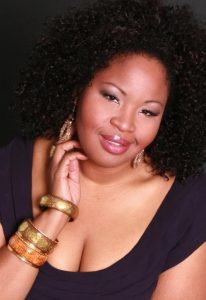STRENGTH IN NUMBERS: In a response to a myriad of adjustments in the world of opera and the performing arts, opera luminaries have stepped up and out on numerous issues during this time.
by Patrick D. McCoy
It is no denying that this period of social distancing and quelled performances because of COVID-19 has caused artists to be creative and use their platforms in ways that they may have not previously considered. From panel discussions, one-on-one interviews and virtual performances, numerous stars have given graciously in contributing to the realm of classical music and the arts during these unprecedented times.
In the present season of racial unrest and injustice in the killings of George Floyd, Breonna Taylor, Elijah McClain and so many others lost to police brutality, this has caused many artists of color in the realm of classical music to take a stand regarding their own personal stories of racial inequality in the realm of opera and classical music.
Even before this particular period of time, the banner of justice and the equality has been the battle cry of great artists who have come before: Marian Anderson, Paul Robeson, Leontyne Price and Jessye Norman, among many others. That indomitable spirit has come forward once again as current Black opera luminaries such as Lawrence Brownlee, Morris Robinson, Russell Thomas, Laquita Mitchell, Julia Bullock, Karen Slack, Kenneth Overton, J’Nai Bridges and Kenneth Kellogg who have spoken courageously about the racial tensions that have historically plagued the industry. Additionally, fellow allies including Stephanie Blythe, Joyce DiDonato and Lisette Oropesa have all stood in solidarity with their Black colleagues during this time.
I caught up exclusively with soprano Karen Slack about her thoughts about speaking up for social justice during these unsettling times.

(Hailed by critics for possessing a lustrous voice of extraordinary beauty and artistry of great dramatic depth American soprano Karen Slack has performed with major conductors in opera houses and concert halls around the world.-Photo Courtesy of the Artist)
“There was no other choice! I felt empowered by the moment and the invitations received to speak on panels about the current events. I have a small group of colleagues whom I consider family that I talk to regularly about these issues. One of my personal quotes is “When called upon you must show up! They called you and they already know what they’re getting, so give it the best you got! Not for one second did I feel fear! Nervous yes, but fear NO!
What did I have to lose? Why be afraid to speak my truth in this moment? That is my jobs as an artist to get to the truth of every story I tell so why should it be any different because it’s MY STORY! I believe deeply that operating in a place of service is the only I can move through life. Being serve to this movement was the only thing on my mind. I am here to be of service to my people AND my art.” –the renowned soprano shared.
Because of the bravery of these artists and their willingness to speak directly to the institutional sources, great changes have been made because of their candor. In regards to the removal of David Tucker from the Richard Tucker Foundation Board, that action, whether directly or indirectly- was the result of opera star power at its best, making their voices directly heard to those who make important decisions.
As we continue to have discussions surrounding diversity and justice through music, it is the resolute spirit and actions of such artists that call institutions out-summoning them to operate in a spirit of equality for all artists.
A native of Petersburg, VA, Patrick holds a BM in Vocal Performance from Virginia State University and a MM in Church Music from Shenandoah Conservatory. Formerly the Performing Arts Columnist for Washington Life Magazine, he currently is a freelance writer, publishing articles for several noted publications, including The Washington Post, Early Music America Classical Music Voice North America, The Afro-American Newspaper, CBS Washington and Examiner.com. He is a member of the Music Critics Association of North America, National Association of Negro Musicians, Inc., The American Choral Directors’ Association, a member of the Shenandoah University Alumni Board of Directors and a Life Member of Alpha Phi Alpha Fraternity, Inc. He serves as Organist/Choirmaster at Saint John’s Episcopal Church, Zion Parish in Beltsville, MD and serves on the music faculty of Virginia State University where he teaches applied voice, music appreciation and assist with the University Concert Choir. Visit http://patrickdmccoy.com

